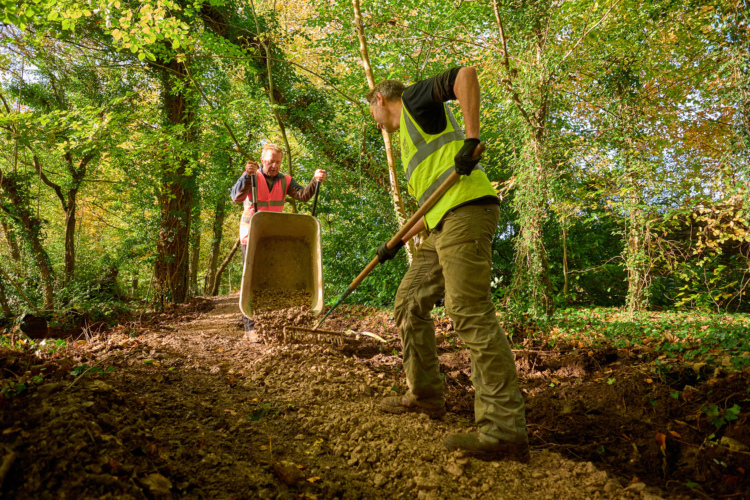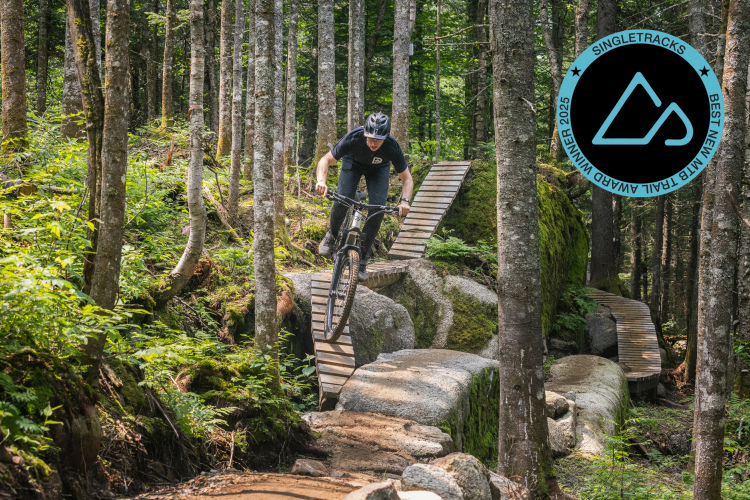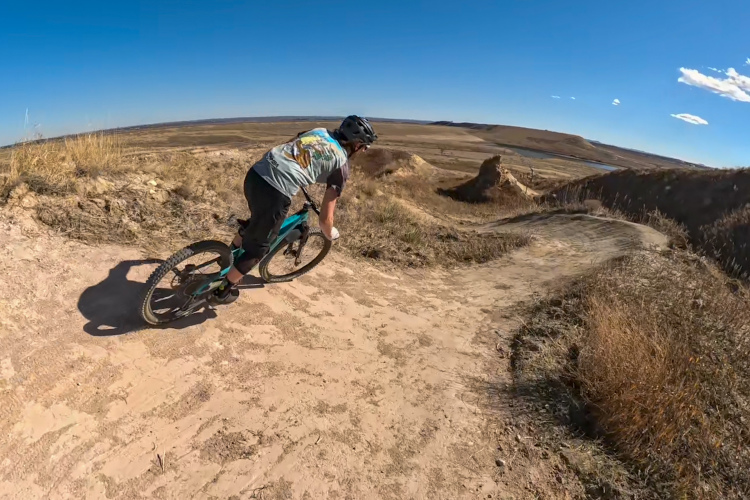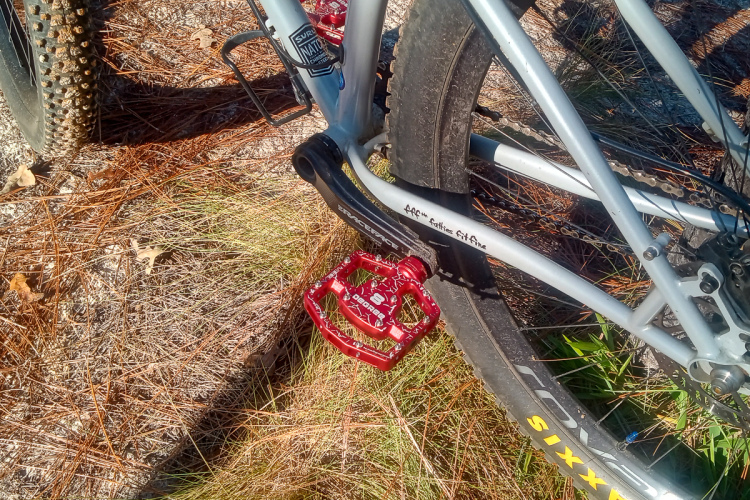
A planned £13 million budget cut by Natural Resources Wales (NRW) will have an outsized impact on outdoor recreation and mountain bike trail infrastructure, according to a letter drafted by Cycling UK, Beicio Cymru (formerly Welsh Cycling), the UK MTB Trail Alliance, Mountain Bike Wales and the Wales Adventure Tourism Organisation (WATO), and signed by “over 90 other groups, organizations and businesses from across the Welsh mountain bike sector.”
On July 31st, the NRW announced their Proposal for Organizational Change, and in documents released at that time, the NRW said that they “plan to reduce our budget by £13 million for the [1st of] April 2025, through removing 265 posts, of which 108 posts are vacant, from our structure.”
In order to choose where to allocate remaining funding, the NRW determined that “the level of resource committed to some activities will scale back, including outdoor access and recreation.” They went on to say, “we propose scaling back on the management of heritage features on the Welsh Government Woodland Estate, the operation of non-commercial recreation, and visitor access and estate recreation planning.”
According to the letter released by the joint mountain biking coalition, the visitor centers flagged for closure may only close temporarily until a private company can be hired to run the facilities. However, due to the NRW’s pervasive red tape and inability to move quickly, the coalition is worried that a temporary closure could lead to the visitor centers being closed for a year or more, negatively impacting tourism.

What does this have to do with mountain biking?
Over 500km of official mountain bike trails are located on NRW land, including Coed y Brenin, “the world’s first trail center” and “the birthplace of modern mountain biking,” according to the letter. Coed y Brenin is one of the visitor centers that would close (at least temporarily) following the budget cuts. In addition, an estimated 1,200km of unofficial trails are also located on NRW land.
The NRW is responsible for the maintenance and development of mountain bike trails on their land, but some say they’ve proven to be poor managers of the resource. “Over the last decade [the NRW] has spent progressively less and less on the evolution and upkeep [of the mountain bike trails], meaning they are now in a sorry state of repair, with some, like those in Penmachno, either closed to the public for safety reasons, or virtually unrideable due to their condition and lack of vegetation management,” according to the letter.
“If NRW’s proposal is implemented, it will inevitably result in the rest of NRW’s trail network suffering the same fate as Penmachno, with trails quickly becoming either unrideable or closed, as there will be inadequate budget and resources to maintain them, with obvious direct impacts, not just on the users of the trails, but also on the communities around them. If these trails are to safely stay open, then both meaningful funding and a radical change of approach is required.”
While volunteer maintenance seems like it would be a solution to this problem, the letter suggests that in the past the NRW has exhibited an inability to work with volunteer groups. Several groups which have been seeking approval to conduct trail maintenance for years “are still drowning in internal NRW red tape.”
The coalition calls on the Welsh government to make five changes, two of which relate to creating a better system for partnering with locals. They call on the government to allow volunteer groups to “help maintain and develop Wales’ mountain bike trails” and that the NRW “consider local community groups as candidate partners to take on the running of these centers.” The other three requests are all different versions of requesting that the NRW continue investing in mountain bike trails and outdoor recreation.

The public letter is long and, at times, convoluted; if you like, you can read it for yourself below. Several of the claims made in the letter appear to be unsubstantiated, and in some cases, seem contradictory. When referring to the unofficial community-built trails on NRW land, they first call them a “liability risk,” and in the following sentence, try to spin the same trails as providing “obvious benefits to the health, well-being, and economy of local communities.” At this point in the letter, the coalition is trying to encourage Wales to adopt Right to Roam laws similar to those found in Scotland and many other Northern European countries so that the NRW would carry less liability.
Perhaps it’s not the perfect time to advocate for some of these changes, but then, when is the perfect time? The proposed NRW budget cuts have helped catalyze and unify these many different mountain bike groups in Wales, so perhaps now is the best time to advocate for sweeping change.
“It’s amazing to see how Wales’ mountain bike community have come together to voice their concerns about NRW’s cuts and the devastating effect they would have on riders, communities and businesses across Wales,” said Robin Grant, Chair of the UK MTB Trail Alliance. “Trails in Wales, and across the UK, face a crisis, with little to no money for ongoing maintenance or improvement. Volunteer groups are primed to help, but NRW and other public sector bodies need to radically simplify the way they work with volunteers to allow this to happen. We call on the Welsh Government to reconsider, and to implement our five asks.”
With the many different parties involved in public policy changes, the budget cuts are far from a sure thing. The plan is set to be presented to the NRW Board on September 25th, so there is still time for modifications to the plan before or during the upcoming board meeting.
To get involved, connect with the UK MTB Trail Alliance to show your support. A petition submitted to the Welsh Petitions Committee gathered 13,245 signatures, but it is now closed. And if you wish to donate funds, the UK MTB Trail Alliance is currently running a Gofundme titled “Help us to protect your trails.”











1 Comments
Sep 20, 2024
On the funding side, I would wager that most governments and organizations could rightfully be criticized for under funding outdoor recreation, so this seems like a tougher one to solve.